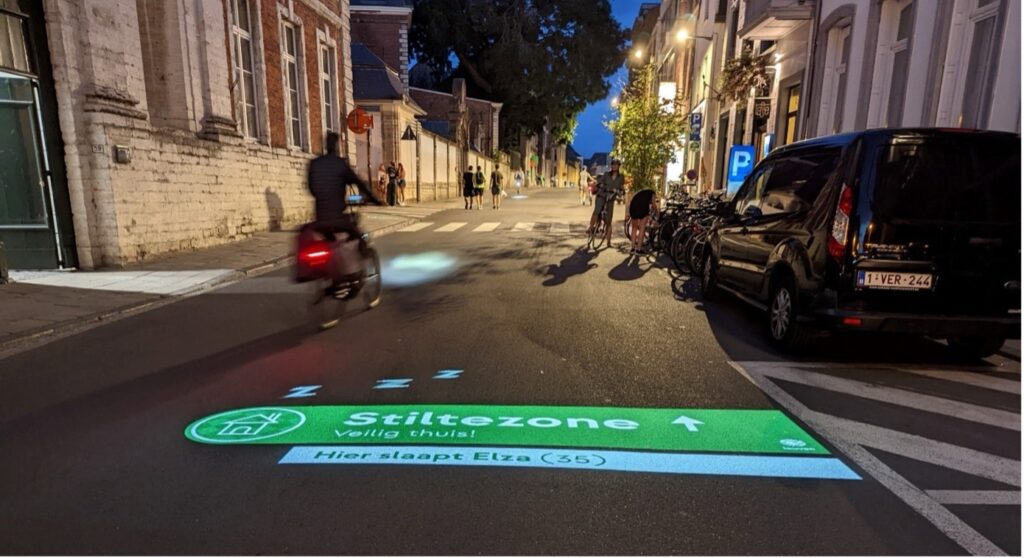Unlocking urban data to catalyze research
A city is a dynamic entity where national and local policymakers continuously aim to implement positive changes for their citizens. This decision-making process can be influenced by various factors and urban data has recently become a significant player in this dynamic. Through data collection and analysis, patterns emerge, enabling targeted interventions based on objective predictions. The smart city data platform adopted by three Flemish cities – Leuven, Roeselare, and Bruges – has attracted global recognition, as they won the award for Enabling Technologies at the Smart City Expo World Congress in Barcelona. “To respond promptly to our citizens’ needs, we need to change the way we govern our cities,” says Van Oppens. “By leveraging data collection techniques, we can not only identify urban challenges, we can also provide and evaluate solutions.” To do so, urban data needs to be made available to researchers. Leuven is committed to maximizing the accessibility of urban data, enabling researchers with diverse backgrounds and interests to study city dynamics. Through the website leuven.incijfers.be, the public has open access to numerous statistics about Leuven. The data is organized into various sections, including demographics, education, mobility, climate, economy, and more. Each section offers a wealth of data, such as trends in energy consumption, waste collection, real estate pricing, and educational levels. Van Oppens emphasizes, “The data we collect are non-personal, ensuring the privacy of our citizens is not compromised.” In the future, automated recommendations could be generated, leveraging the data and derived analyses to enhance the efficiency of decision-making and policy guidance.
“When the city becomes a laboratory, data and research allow us to efficiently improve our public space far beyond what an individual policy maker could achieve.” – Thomas Van Oppens, Deputy major of Leuven
Turning data into actions
The various projects ongoing in Leuven demonstrate that collecting and analyzing data can translate into tangible actions and promising results. In one of these projects, the goal is to alleviate noise disturbances in the city center. Given that Leuven has a substantial student population, residents have raised concerns about excessive noise late in the evening and during the night. To effectively address this issue, the problem was first objectively assessed. Smart microphones were strategically placed in the streets surrounding the popular nightlife area to determine the extent, location, and timing of the disturbances. With a better understanding of the problem, various solutions were tested and evaluated. Some measures, such as putting up preventive posters or dimming street lights, did not have a significant impact. However, projecting preventive messages onto the streets resulted in a 30% reduction in noise events, a meaningful improvement for the neighbors’ nighttime peace.

Picture 1. Preventive street projections to reduce noise hindrance in Leuven.
In an another initiative named leuven.cool, researchers explored the influence of urban nature on summer temperatures in the city center. Data collected from smart temperature measuring stations across both public and private spaces showed that integrating natural elements, such as trees, into the cityscape could notably reduce the temperatures. This provides tangible information for policymakers to take proactive measures. Artificial intelligence is also employed to forecast the impact of potential solutions. To alleviate traffic congestion in certain streets in and around the city center, smart cameras capable of precisely counting passing vehicles were strategically installed. Once traffic hotspots were identified, AI was utilized to simulate the effects of strategic changes in the mobility plan.
Local collaborations leading to international reputation
Leuven is renowned as a knowledge hub, boasting a lively industrial scene, and is, of course, the proud home of KU Leuven, recognized by Reuters as Europe’s most innovative university. The connection between the city of Leuven and the university is crucial for fostering intensive collaboration. Alongside two other key partners, UCLL, a university of applied sciences and arts, and imec, a globally acclaimed research center for nano-electronics and digital technology, they constitute the foundation of the Leuven 2030 Urban Lab. With a shared objective, the network seeks to identify and study sustainability challenges, offering appropriate solutions. Collaborative research and educational projects involve scientists, students, citizens, policymakers, and various other stakeholders.
“Establishing the Urban Lab has shown that bridging the gap between policymakers and researchers leads to great opportunities. By sharing knowledge and allowing room for experimentation, innovation is boosted.” – Thomas Van Oppens, Deputy major of Leuven
Interest in Leuven’s adopted strategy extends beyond local borders, with other cities expressing curiosity. Van Oppens adds, “In several projects, we collaborate with other cities, and outcomes from our local projects often have direct or indirect applicability to other regions.” So beyond being a knowledge hub, Leuven emerges as a city of networking – a dynamic environment where knowledge and talent are strategically harnessed to enhance the well-being of its citizens in every conceivable manner.


